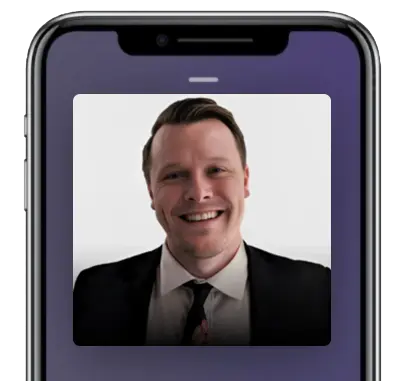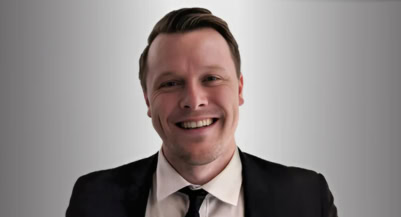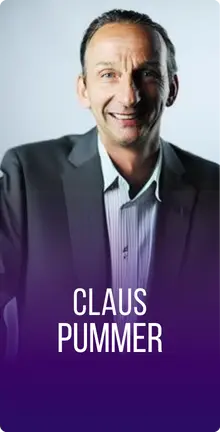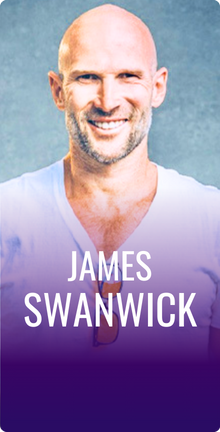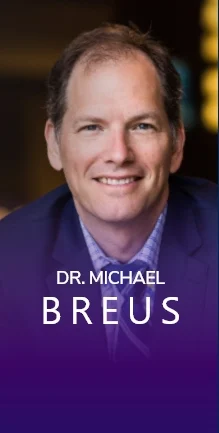In this Episode
- [02:31]Stephan welcomes Michael Byrne, CEO of Bia Neuroscience, expanding on his background and expertise in sleep technology.
- [10:43]Michael elaborates on the smart sleep mask features, data integration plans, and safety standards.
- [21:42]Michael discusses sens.ai, a tech system for ADHD that can be used at home, and Stephan shares his experiences with the 40 Years of Zen program.
- [24:15]Michael shares his regular use of magnesium, experimenting with L-Theanine and chamomile, and cautious use of melatonin and GABA. He also reveals his preferences for magnesium types.
- [27:41]Overview of sleep coaching tiers: Early Bird, Premium, and Ultra, connecting users to sleep coaches.
- [29:11]Michael’s journaling practice to manage anxiety and improve sleep, including pen-and-paper preference.
- [33:38]Michael enumerates some tools he uses, such as Sens.ai, Muse 2, and Neurable headphones, and gives his thoughts on biohacking tools like infrared saunas and cold plunge tanks.
- [38:33]Michael offers advice on reducing tasks, prioritizing important ones, and taking incremental steps towards lifestyle changes.
Michael, it’s so great to have you on the show.
Yeah, I’m excited to be here. Thanks for having me.
I would love to hear how you got so into sleep. You were a neurofeedback technician but apparently, you had a real passion for improving sleep. What was the impetus for this?
It actually came from working in the neurofeedback clinic as a technician there. One of the questions we always ask people is, “How was your sleep?” In neurofeedback clinics, you tend to get everything under the sun coming in. People are just looking to optimize their health a little bit—people with anxiety, depression, concussions, etc. We had everything come through the door.
Sleep was one of the most consistent ways for us to get any level of objective understanding of how they were responding and how they were actually doing. Asking someone, “Hey, how do you feel today?” And they’ve had depression for five years is not going to get you something valuable, and it’s not going to put them in the right place. “How was your sleep?” Pretty easy for them to quantify that, to share that experience. That can vary on a daily basis.
That was my first touch point into the sleep space. I realized how crucial sleep was to your mental health and overall well-being and ended up moving on to the sleep supplement company from there. I met my co-founder there. He was hiring number one, I was hiring number two. We were able to grow that business and get that one moving. We were selling 500 bottles a day of the sleep aid there.
Bia's smart sleep mask isn't just about measuring brain activity; it's about adapting audio stimuli to guide you into different sleep stages, making sleep not just longer but qualitatively better. Share on XEventually, we both moved on, did our own things, wanted to work together, wanted to look at our opportunities to do that, and we started doing some pretty deep customer discovery. His background was actually more IBM, a bit more on the software side of things. I wanted to get back into neurotechnology.
We’re looking for ways to combine our backgrounds, and we didn’t actually look at sleep initially; only when we started looking at other neurotech companies, looking at customers, surveying thousands of people, we started to realize it’s just right back to where the problem is and where our background is sleep. What made it extra obvious is that my wife doesn’t sleep that well, either. It became a pain point for me every single night that I witnessed that. That’s how we ended up going right back into the sleep space, right back into neurotech years later.
How is your wife sleeping these days?
It’s getting better. We’re still in the beta phase for our products, so we’re still in the early stages. I haven’t really been able to give her the full juice yet and the full experience, but I am very excited to get it fully ready for her to be the first test run.
Now, you mentioned sleep aids. Can you talk a bit more about sleep aids and what some of those we are talking about? Are there other kinds of sleep aids besides supplements our listeners should know about?

I guess it depends on how you define it, too. There’s the supplement side. They’re probably the most well-known, and there are always various concoctions or individual components. You could look at L-theanine, chamomile, melatonin, etc. There are tons of other ones that you can qualify as sleep aids: blackout blinds, a generic sleep mask, and noise machines. The scent is actually really important.
Scent is a great way to create associations with your sleep space that are positive. You just need to be very diligent in how you use that. An essential oil, for example, can be actually quite beneficial.
Any in particular, or just using essential oils is helpful?
Yeah, there will be some that will be. I’m sure if you just search it on a company website that sells essential oils, they’ll be able to speak to it better than I can. But the most important part is that your brain starts associating this smell with sleep. That’s the most important thing. You don’t want to use it, then turn on the TV, or you don’t want to put it on while you’re working or put the identical scent while trying to sleep. The only time you use that is when the lights are off.
Your sleep environment holds more power than you think—adjusting lighting, temperature, and scent can transform your nights and elevate your sleep quality. Share on X“I’m ready to go to sleep. I’m confident I’m going to get a good night’s sleep tonight,” not when you’re anxious, not when you’re worked up because your brain needs to make that association. “Yes, I know I’m going to get a good night’s sleep. I’m exhausted.” Put that on, and then across time, do that regularly. Three or four months later, when you’re anxious, it will help you fall asleep because your brain’s made that association.
It’s an anchor.
Exactly.
I interviewed Dr. Peter Martone recently, and he talks about having a memory you use as an anchor in that episode. So if you’re walking a boardwalk or a particular beach or forest or something that you’ve walked in the past a number of times, or it was just particularly vivid and memorable the one time that you did it.
You can replay that memory as you’re trying to fall asleep, and then that will help you as you reinforce it, replaying that memory multiple times over and over again over weeks and then only recalling that memory when you’re trying to go to sleep. And then, if you wake up prematurely before you want to, you can replay that memory again to fall back asleep. I thought that was really cool.
That’s very smart.
I’m a biohacker. I love geeking out on gadgets, and I was one of the early adopters of the Zeo headband. Do you remember Zeo?
I’m very familiar.
They’re out of business, and I had all those wonderful tracked nights of sleep in the app that are unavailable to me now, which is fine. It is what it is. But how do you address a concern from a prospective customer that, “Hey, how do I know that Bia is going to be around in five years?” Because I would have thought that Zeo would have been around for a long time, but it didn’t make it.
I would love to say that we’ll be around for the next hundred years, and we have all the money in the world. It’ll never end. We’re not Apple. We don’t have that level of power to make that statement. So actually, a lot of what we’re designing is so that you’re able to export your own data, and you’ll have access to it that even if the company were to go under, the app would still continue to function as long as we’re not pushing an update to close it down. It doesn’t help anyone to do that.
You’ll be able to export your own data. We’re looking at connecting it to Apple Health, Google Health, and Samsung Health. So you’d also be able to integrate that. If you go for a run, you can also integrate that data with sleep data.
That’s great. There’s another great platform for tracking your health and biohacking metrics. It’s called Heads Up Health. I interviewed David Korsunsky on this podcast, and he’s the founder of Heads Up Health.
Amazing.
He talked about all the different kinds of things you can measure using his technology or just measuring to see if you can improve your health—nocturnal HRV. We talked about doing DEXA scans and tracking all these things over time in one platform, such as Heads Up. That was interesting. I guess you’ll integrate or you do integrate with Apple Health. That would also mean it would integrate with Heads Up since they tie into that.
Yeah, it’s likely that we’re going to start with the biggest names possible first to make it as simple, and then we will look at further integrations past that. But we are very, very sleep-focused. I’m excited to give that one a listen. We’re very much focused on sleep space; that’s our main target.
What’s the secret sauce to having a sleep mask with neurotechnology? And you’re not just wearing a dumb sleep mask that blocks the light. What’s the magic here that makes it so effective for a person?
With our smart sleep mask, we’re measuring your brain activity and playing back audio based on that brain activity.
I won’t go too granular yet, but the big thing we do differently is measure and improve in real-time. We can do it all signal-free. With our smart sleep mask, we’re measuring your brain activity and playing back audio based on that brain activity. If you put it on the first time, you’ll hear a startup sound. Neuroscientists build that startup sound. It’s completely soothing. It’s to set the tone. While we were talking about the sense, “Okay, it’s time to sleep. I’m in my sleep space.” Then, we measure your brain activity.
Say, okay, you’re wide awake. Maybe you’re worried about a meeting you’ve got tomorrow. We’ll start to play back audio that’s a bit more meditative and a bit more relaxed. We’re going to guide your brain to relax and get into a calmer state. Once we see you start to go towards that meditative state, we slow it down further, and you go towards stage one sleep and stage two, and we guide you through the sleep stages throughout the night.
What we do that I think is the most unique to us is in the morning, we’ll wake you up with a sunrise alarm. You got your alarm set at 7 AM. At 6.30, the tiniest bit of light will start to emit. And what we’re doing is we’re mimicking an actual sunrise. The goal here is that you can sleep and get that sunset-sunrise experience on your own schedule rather than on the schedule of the sun outside. It’s going to be within your control as to when that happens.
It’s just a more pleasant way to wake up. You don’t have an alarm beeping on the side of the desk, the nightstand disturbing your partner or having that jolting experience. Just soothe the calming sunrise experience. The long-term goal here, and maybe the future will be developed by the time this podcast is out, is having affirmations ready, being able to meditate and getting that 10 minutes of sunlight without moving an itch. You wake up, and we’ll detect you’re awake now. We’ll start playing affirmations, get you into a meditative state, do guided meditation while you’re lying in bed, and don’t have to move an inch. You can just get that all done as a way to start your day.
What we do that I think is the most unique to us is in the morning, we’ll wake you up with a sunrise alarm.
That’s really cool. Where do things like binaural beats fit into the equation?
Binaural beats are kind of like saying a sunset is yellow. It’s a lot more specific and direct, whereas our neural music is much more nuanced and detailed. It’s looking at the whole spectrum. You’re getting not just a lot of binaural beats. We like delta waves, which you’re listening to and hearing. We’re focusing on providing that whole spectrum of brain activity. Then they mix that stage one sleep, so it’ll be delta wave dominant, but it will also have the other aspects in there to guide you through those sleep stages.
Is there a point where the music is off completely?
That’s going to be up to you.
What do you recommend there? If you’re in a deep sleep, I would imagine no music is probably best to keep you in that deep sleep.
It varies. Your brain still hears music throughout the night, so audio is arguably more sensitive to noise while you’re asleep. That’s what needs to jar you awake so your brain can still actually absorb the neural music. It can still respond to it and adapt across time. We can help boost that deep sleep. We can help with the sleep guidance even while you’re asleep. I suggest wearing it and keeping it going throughout the night, but it might not work for some people. We’ll have it as a future that once we detect your sleep, it’ll turn off.
We have what we call an auto-pause feature. All our music is on the device. It’s completely signal-free, with no Bluetooth connection. It’ll be before you go to sleep. We’ll have Bluetooth to make sure the mask is up to date, and then when you wake up, it’ll sync all the data and send it to the cloud. We don’t have a 2-terabyte hard drive for this thing. It’s not that big and fits in a sleep mask.
Binaural beats are like saying a sunset is yellow. It’s much more specific and direct, whereas our neural music is much more nuanced and detailed.
We need to sync that data up. Throughout the night, it’s neural music. If you want, you can have Bluetooth streaming throughout the night. And we’re passing all these incredibly high standard tests because we’re so close to your head for the EMF radiation there to ensure we’re as safe as possible on that testing. So we’ll have the Bluetooth. If you want, you can have an auto-pause feature.
People like listening to audiobooks, music, or podcasts while asleep. Once we detect your sleep, we’ll pause the music for you so we can do the same with our neural music without requiring a connection.
So, neural music, I haven’t heard that term before. Is that something you coined, or is that something out there in the world?
As far as we know, it was internally coined or something like that. It’s just impossible to get that trademark. But that’s what we call it: neural music.
What makes it neural music? Isn’t all music neural? Your brain is processing it.
We’ve done the same thing, working with neuroscientists on this specifically. The music is finely tuned to match those brain states. That’s where the neural aspect of it is. The music is less about the rhythmic experience—not that it’s not rhythmic or unenjoyable—but that its focus is to mimic brain states.
Let’s talk a bit more about the brain states. Our listeners may not be familiar with the benefits and reasons for REM sleep, deep sleep, and light sleep, or how different times of the night people are more likely to be in one phase of sleep versus another. Maybe you could walk us through that a bit more.

Just do this sequentially for simplicity’s sake. Let’s say you go to bed at 10 PM, and you’re going to wake up at 6 AM for again a generic eight-hour cycle. At the beginning of the night, when you’re first putting it on, your mind’s quite active, quite alert. The brain waves that would be detected are moving a lot quicker. In our case, the blood flow is going to be a lot more active and a lot more oxygenated as you relax.
As you unwind, the activity starts to slow down when you fall asleep. There’s, let’s say, awake meditative N1, N2, N3 and REM. N1 is stage one sleep, and stage two is N2, considered light sleep as well. Then there’s stage three, N3, which is deep sleep, and then there’s REM. REM stands for rapid eye movement. That’s usually where dreaming happens. So what’ll happen? You fall asleep.
People tend to get a deeper sleep earlier in the night. You’ll go through these cycles. You’ll go from your wide-awake meditative stage one to stage two to stage three. Then you’ll go to REM. Typically, people show it as this very nice clean step ladder of up and down, up and down. That’s not reality. You may go from stage one straight to stage three to REM, then to stage two. It jumps around a little bit from person to person.
Generally speaking, throughout the night, you get more deep sleep earlier in the morning, and you get more deep sleep earlier in the night, and REM sleep later in your sleep cycles, later in the evening or early morning. Going through stages one and two, a lot of it is getting your body to relax and start going through the sleep processes to get it to start to recover. Stage three is often considered the time when cerebral spinal fluid pumps through your brain. It’s cleaning up the junk, it’s memory consolidation, it’s physical recovery.
A lot of memory consolidation occurs during REM as well. That’s where you get sleep spindles and a handful of other fun things happening.
Deep sleep is often considered very important. It’s better studied as well. Then, there’s REM sleep. REM sleep is fascinating. Your eyes are moving back and forth. It’s when most dreaming tends to happen. A lot of memory consolidation occurs during REM as well. That’s where you get sleep spindles and a handful of other fun things happening.
What are sleep spindles?
It’s a specific brain activity. You usually need to be in a lab to get that level of accuracy. You need so many sensors. If someone has more sleep spindles one night versus the other, you’ll see improvements in their memory consolidation. So if they learned a list of 10 words one night and they get almost no sleep spindles, they won’t remember nearly as much the next morning compared to a night where they get a ton of sleep spindles. The best understanding of it right now is memory consolidation moments.
I got it. You said you’re in beta right now. Are you running a Kickstarter or Indiegogo campaign to get up and running, or are you selling through your website while in beta and developing new features as you receive more orders?
It’s functionally like a Kickstarter-Indiegogo being done through our own website. So, instead of through the Kickstarter or Indiegogo platform, it’s on our own website. We do have our beta itself, and then we have it calling it early bird units. The early bird units come in the second phase beta. We have those manufacturing right now, so those will be coming out in the next couple of months. Manufacturing has a wide array, and we need to do all the testing to ensure they’re all good to go to fully validate those units. Then, based on the beta, we make our final tweaks and launch a product.
Awesome. I’m curious if you do neurofeedback yourself and whether you get sessions on a regular basis.
Yeah, as much as I can. I used to actually have a system at home myself, and it was much more difficult trying to set up the sensors on my own head. It’s been fantastic for me throughout my adult life and very helpful for me to clear my mind. The more you do it, the better your brain gets at recognizing it, too. So now I don’t need sessions nearly as often as I used to. But, yeah, it’s still a huge help for my brain health.
Journaling at day's end feels like transferring your worries from mind to paper—a simple act that clears anxieties and paves the way for restful sleep. Share on XWhat are some of the benefits that you’ve noticed?
Mental clarity, I think, was by far the biggest difference. I just felt so much clearer. I sleep a lot better. I used to wake up pretty well every 45 minutes to an hour. I’d usually be able to fall asleep 10 minutes later, but I needed much more sleep than I do now because I was just waking up over and over and over again. How I felt in the morning wasn’t nearly the same as I do now. Mental clarity was huge for me.
I did play soccer a lot growing up, and there are a lot of concussions in soccer, so it’s possible that I had a minor TBI, a minor concussion or something that kind of went undiagnosed, and that was helpful with that as well.
Do you sleep through the night now, or do you still get occasional wake-ups during the night?
I tend to sleep for four or five hours straight without problems. Then, I’ll occasionally wake up, but I’m usually right back to sleep, go to the washroom, and come back out.
That’s a big improvement.
Yeah, it’s a big, big difference.
You said you had a neurofeedback kit at home. What did you have, and how did that work? I used to go to Peak Brain Institute. If you know Dr. Andrew Hill, he was also a guest on this podcast. That was cool, and I enjoyed it. But I no longer live near Peak Brain Institute. I’m on the other side of the country now.
I also did 40 Years of Zen, an intensive week-long neurofeedback program, which was awesome. It unlocked some positive memories of my childhood, which was not easy. So, I guess I blocked a lot of that out. But that neurofeedback intensive unlocked some beautiful memories I hadn’t had since childhood, which was really cool.
Amazing. Those are both amazing programs. If you’re looking to do neurofeedback, one of the best ways to do it is intensively. Just fully immerse yourself in that experience. It will change your approach and how your brain responds, creating a space for it to be effective. The tech I used to have at home was called BrainPaint. That was a pretty cool system. It’s actually largely focused on ADHD. That’s generally the angle they go for.
The tech I now use is called sens.ai—pretty cool tech. It’s like an at-home system. Anyone can buy it. You don’t need to be a certified neurofeedback technician. It’s a pretty good set, too. They’ve done a good job.
Awesome. Have you ever tried 40 Years of Zen or something similar?
We had people come into the clinic who had done 40 Years. Generally speaking, the clinic was doing one to two-week intensives for people coming in at least twice a day. But yeah, we had a couple of people come through the door who absolutely loved their experience there.
It was really cool. My wife and I did it together. Something special about doing that program is that these augmented reset processes are kind of like therapy sessions on steroids. You do a lot of forgiveness work, and then it releases a lot more alpha and gets you into these more awesome brainwave states. It shows up in neurofeedback when they’re doing the scans and all that. I interviewed Chris Keane, who was the CTO at 40 Years of Zen.
I’m curious to hear about your favorite supplements that you use and that you may have your wife use. What have been the best kind of needle movers for you? There are the obvious ones, like melatonin, but I’d like to know if there are any tips or tricks that you want to share.
The tech I now use is called sens.ai. It’s like an at-home system where anyone can buy it, and you don’t need to be a certified neurofeedback technician.
Melatonin, we kind of treat it as an emergency use situation just because your body gets used to it and adapts. For me, it gives me some pretty crazy dreams that are less pleasant, and I wake up tired. I have a magnesium deficiency for me. So, I take magnesium quite regularly. It’s been very big for me. I focus on a powder because it’s easy enough to put into a glass of water. Getting a glass of water before bed is also good. Magnesium powder has been huge.
I suggest experimenting and finding what works for you. It’s such a person-to-person situation. I don’t want to say L. Theanine is perfect. It’ll help everyone sleep. You need to test and try things. L. Theanine and chamomile are great. Valerian root is also fantastic. They’re all worth giving it a try. I suggest melatonin GABA, being a little more cautious on the frequency of use of those and the dose and not becoming like, “Yeah, this is my staple.” You’re probably going to get a surprise in a few months when it stops working, and your sleep starts slowing down because your body gets used to it.
Now, you said magnesium. There are seven different types of magnesium that you could take. What are the ones that you recommend?
Bioglycin and chelates work great for me, as do some magnesium. However, magnesium can upset people’s digestive systems, so it’s worth double-checking.
I take something called Magnesium Breakthrough from BIOptimizers, which contains seven types of magnesium: magnesium chelate, citrate, bisglycinate, malate, and sucrosomial. I also take magnesium taurate and magnesium orotate. That’s a lot of magnesium, so it’s a good product. I like it. Do you take a particular brand of magnesium?
We’re in Canada. I use products from a company called Jamieson. They’re very classic. You can get them at any corner store, big name. But what I like about them is that they’re manufactured in Canada, and all the sourcing is done. So I know the standards they follow and that they’re not getting this farmed out somewhere else. It’s got the NSF sample in there, which is crucial. They hit all the check marks for me.
NSF, what does that stand for?
We treat melatonin as an emergency use situation just because your body gets used to it and adapts.
Natural supplement. Out of the industry for a while. There’s NSF, and there’s another stamp that’s quite important. You want to make sure it’s NSF.
On your website, you have three different tiers. Of course, this will change when everything goes out of beta and into full production, but you have those different tiers: the early adopters, the beta and the full production. So, the price jump for full production is quite significant. What will be in that version that is so significantly better that it’s three times more?
And actually, on that one specifically, it’s getting connected with a sleep coach, so we got the Early Bird Premium and Ultra. The Ultra is getting connected directly with the sleep coach, guiding you through the process, ensuring you have what you need to succeed, and getting sessions throughout the process. That one we actually make the least amount of money on it costs the most. But we’re just using or connected with over a hundred sleep experts, and we’re just connecting the right person for that individual. So we’ll have a call with anyone who buys that package, talk to them, see what they need, and see the best fit. We find an appropriate sleep coach to partner with for them, and then that sleep coach will go through their process and ensure they’re getting the most out of our product.
What’s involved in sleep coaching?
It depends on which sleep coach you go with. Much of it has to do with changing your experience of your environment and your experience with yourself around sleep. So that experience with yourself can be something as simple as adjusting your diet and looking at when you do that, or it can be the timing of when you exercise or if you exercise when you have caffeine, how you view your sleep space, how you think when you’re in bed, what’s involved in your sleep space. It’s a lot of taking control over what you can control and how to be very strategic in how you do that. That’d probably be the best high-level summary I could give.
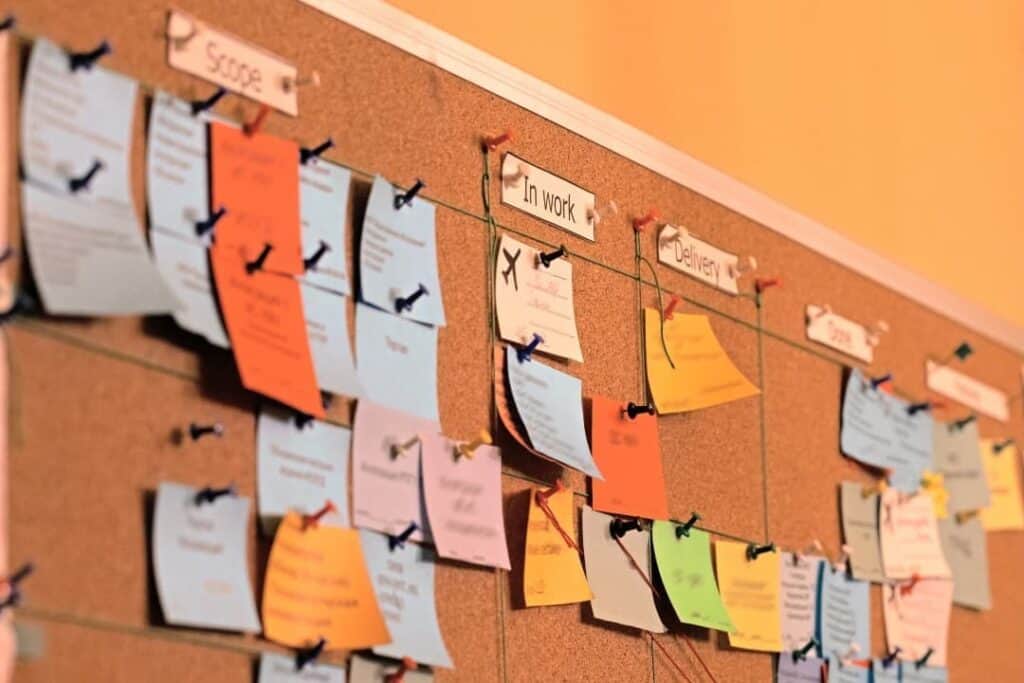
What have you done to better control your environment from a sleep standpoint to improve your sleep?
The building of this mass probably made it more difficult initially, just from stress and long hours, getting an idea at 3 AM, and needing to write it down. But journaling is a great way for me to kind of empty my brain before going to bed. I strongly suggest it, especially if you’re a little more anxiety leaning, just writing down what’s giving you anxiety and if you can pop in a solution to whatever that is or when you’ll solve it, and knowing that it’s like, “Okay, that’s a tomorrow problem. I can sleep tonight.” That’s been a big, big change for me. There are guides online on journals, but typically, I’ve noticed variations from coach to coach as to how they like to build the sleep journal. We’re also looking to try and build something into our app for our product.
How does that differ from a gratitude journal or a dream journal? Or are you doing all three types of journaling? Sounds like getting stuff out of your head that would give you anxiety if you forgot about it, and then those things fall off the plate or fall off the end of the cracks or whatever, and then big problems ensue. That’s one kind of journaling. But there are other kinds of journaling to do, too, so I’m curious to hear.
I do gratitude journaling for me to start the day. So when I sit down to start my workday, I do gratitude journaling to set my intentions, what I am thankful for, and what are some good reasons for me to start the day with happiness and keep that throughout the day. Dream journaling, from my side, is a bit more on the creative side of things. At least, that’s how I’ve approached it. I rarely ever dream of a journal. I’m more on the operation side. I’m less on the creative side.
If it’s not a huge commitment, it’s something that’s free.
I don’t get as much joy and excitement from my dreams. They’re just things that have happened, and I’m moving on. But a lot of people absolutely love dream journaling. If it fits, you definitely do it. It’s a great experience to be able to get your dreams out, write them out and interpret them later, and talk to your sleep coach about it. It’s pretty fascinating what comes from those. What is going to keep me up tonight? What’s coming up tomorrow? What was it today that bugged me? How can I allow those to be on paper instead of inside my brain? How can I get that onto the paper instead of inside my brain? That’s my whole objective with sleep journaling.
Are you journaling on pen and paper? Are you journaling on your phone?
I tend to do pen and paper. I usually have my phone up as well because I need to look at the calendar. For me, everything goes on my calendar. If it’s on my calendar, it doesn’t happen. But on the same grounds, I may not realize something’s going to bug me and might not be able to identify what will bug me that night. So, pulling up my calendar is like, “Oh yeah, that bugged me today.” And it allows me to get it out instead of it. Something back of my mind just keeping me up, something’s coming up that’s going to keep me awake, that’s going to disturb my sleep. How do I get that onto the paper instead of in my brain?
I find journaling on a reMarkable tablet that doesn’t have all the distractions of an iPad and also doesn’t light up so much. It doesn’t look like an iPad or iPhone device. I really like journaling on that, and it actually caused me to journal a lot more. I just don’t like typing into a phone or iPad or writing with a stylus on an iPad because it’s so bright and glares and everything.
100%, reMarkable is actually a fantastic product. I really like the work they’ve done.
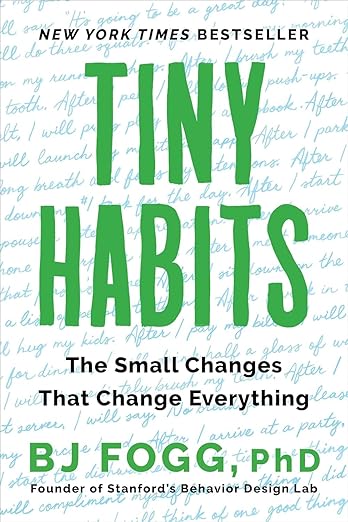
What are some of the things that are tech kind of gadgets and things like the reMarkable that you really like that maybe have nothing to do with sleep or with even biohacking? They’re just really cool pieces of tech that you use, or you really like.
I’m a physical book guy, as you might be able to tell. I love having a physical book.
Yeah, me too.
What I stick to my office is all custom lighting that I can change the colors. It’s more on the biohacking side, though. It’s very much a big part of my life. But it is really nice being able to choose the brightness and the lux and what you have of the lights in the room and the colors, and you can match it to the outside sunlight when it’s gray out. It helps kick the brain in. I’m going too far down that rabbit hole, but I’ve got a focus mode setup that I do with my lighting. Most of the tech and gadgets I have are around biohacking.
What are some of those? I’d love to hear that too.
I’ve got the sens.ai. I use it a lot for meditation. I have the Muse 2 as well for meditation, just the older generation. Muse 2 has been great. I pre-ordered Neurable headphones a long time ago as well. I think they’re called the MW75s now. I’m excited for those ones. They should be coming out soon. They’ll probably be out by the time this podcast is out. They measure your focus.
They’re just a normal set of headphones, but they got dry EEG in the cups over the years. I love those sides. And I’m a huge fan of creating space and the environment. That’s what I try to focus on doing quite a bit. I have certain things that I do for certain times or certain mindsets to help kick me into that mode.
Do you have any big devices for biohacking, such as an infrared sauna or a cold plunge tank?
Everything’s going to change constantly. So, just one step at a time.
Not yet. They’re on the bucket list. All my money has gone into getting this company moving, but it is 100% on my bucket list. I actually really enjoy the experience of an infrared sauna. I’m a fairly sweaty guy, to begin with, so going into a more classic sauna, it becomes quite a bit, and I can feel the anxiety build inside me, which, generally speaking, is not the point of going into a sauna. Infrared saunas are incredibly soothing and relaxing despite still getting that heat and all that benefit without any of the anxiety I get from a standard sauna. I also enjoy cold plunges. I’m in Canada, and we have a polar bear plunge on New Year’s Day, where you go and run into the ocean in freezing temperatures across the snow-covered beach.
That sounds like fun.
Hundreds of people also do it together, so it’s a pretty wild experience.
You mentioned anxiety. Is that something that you’ve been able to address with some sort of particular meditation practice? There’s so much meditation stuff out there. There’s transcendental meditation, Ziva meditation, mindfulness meditation, there’s walking labyrinths, walking meditations, etc. What have you found to be most beneficial for you regarding anxiety?
I actually do a lot of gratitude practice during meditations. Those have been very important for me. I guess for me, my anxiety can become a lot on my own expectations and starting to think about what others are going through or what I can actually be thankful for kind of puts things into perspective for me. Transcendental has also been great for me too. But the one thing I’ve stuck to as a staple has been gratitude practice throughout a meditative state, counting my breathing and focusing on any form of gratitude practice I can do.
Have you tried HeartMath?
Yes, I have—another great product.
Do you do that regularly,, or was it just something you did during a phase and then moved on to something else?
I had a friend who had it, and I tried it a handful of times whenever I visited. I haven’t been able to do a full-on, one-month experiment-type thing on myself with it. But yeah, it’s also a very interesting project.
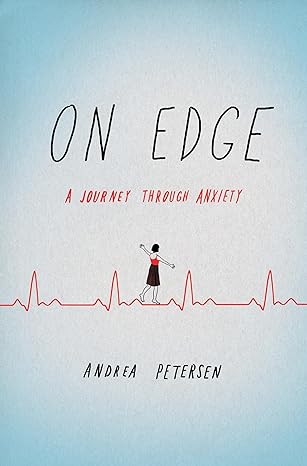
I know there are some books on anxiety. There’s an author named Andrea Petersen who wrote a book on anxiety. I interviewed her on this podcast. That was a great interview. The book is called On Edge: A Journey Through Anxiety. You’re a reader, right? So, which books have helped you the most in regards to anxiety or ADHD or just avoiding distraction and staying focused and in traction?
I don’t know if I have suggestions on that side. I tend to neglect my health a little bit more and focus on helping others. So, I haven’t had actually clinical psychology edition 6 that I read in university. But yeah, I’m not the best reference for that. I’m sure there are plenty of others that have way, way better examples than I can give.
Okay, well, you might check out Andrea’s book On Edge and listen to her episode. It was episode number 146. What would be an easy next action for our listeners to take so that they don’t have to invest any cash, buy any wearable supplements or anything? Something that we haven’t talked about yet that will make their life better? It doesn’t have to be their sleep, but it would probably make sense if it does help their sleep that is just a no-brainer; it’s not a huge commitment for them.
If it’s not a huge commitment, it’s something that’s free. I would talk about more cutting than I would necessarily add, being a lot more selective, and just accepting the list will never end. You’re never going to finish your checklist. If you do, life will be boring. Treat your to-do list on your checklist of what’s reasonable to get done today, cut the rest, what’s most important, and just do those. And if anything else you get to, it’s a bonus, and you can feel great about it. And this is all a better thing for me today.
And the same thing will apply to aspects of your health. Don’t expect to go from eating McDonald’s every day to eating Brian Johnson’s level of the diet, step by step. What’s the goal? What is one thing today that will make me feel better? And that’s it. And just build and build and build. Understand that it’s going to be a long journey and that 10 years from now, that journey will change because we’re going to have new data, science, and findings.
Everything’s going to change constantly. So, just one step at a time, enjoy the ride because you won’t get to the finish point, and if you do, that will be more boring anyway. So make sure the finish point never comes.
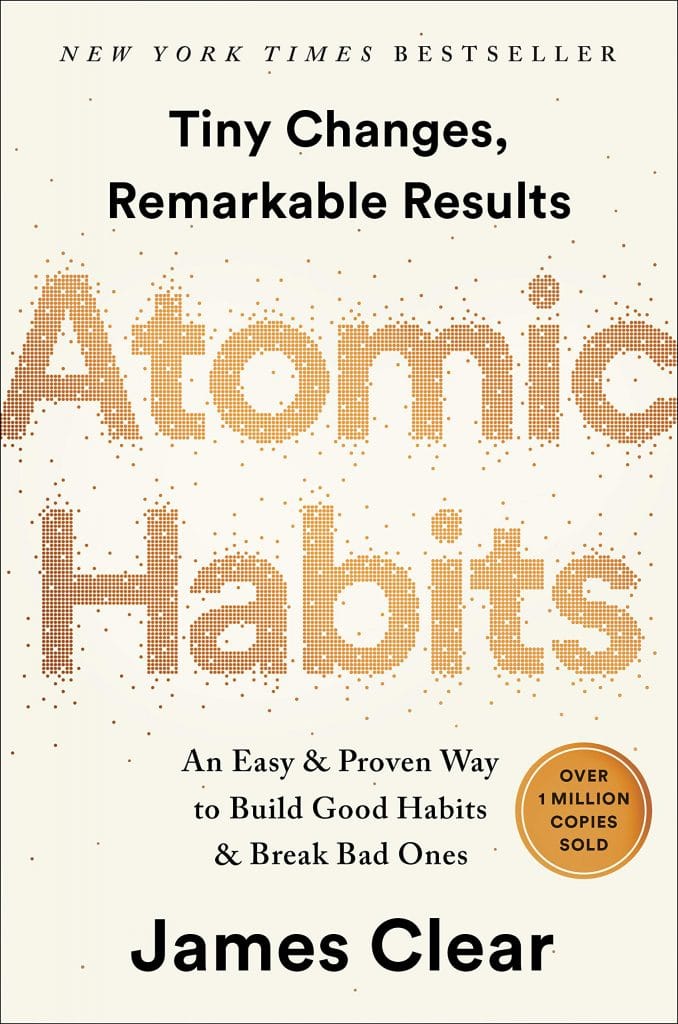
Alright, so it sounds like you’re suggesting starting with small habits like Atomic Habits, Tiny Habits, and then building on those through habit stacking, and not overwhelming yourself, trying to do everything all at once. Get through this step by step.
Exactly. A big problem that I face, and a lot of other people face, is people look at the number of hours in a day and think, “I need to have 16 hours of activities.” But if you look at it more, “How much energy do I have today?” It completely changes your picture and outlook where you focus your energy rather than your time. Because 16 hours, especially today with everything being automated, that’s a ton of time. But is that how you want to spend your energy? And is that an efficient use of your energy?
Because your energy goes up and down as you use it, it’s not quite the same. Your time is 16 hours to 16 hours to 16 hours. It’s going to be like that day in, day out. But your energy will fluctuate, it will adapt, it’ll adjust. So, how do you best use your energy? That was a big mindset switch for me. And then I switched to saying no because I tried to do every single habit, and I tried to do it all at once, just overwhelming myself and not being able to get through everything. So, just focus on the few. What can I control? What is the best fit for me? Where am I now, and how can I build more energy throughout the day, have a higher level of stress tolerance, and so on?
BJ Fogg, author of Tiny Habits, talks about in the book, just committing to flossing one tooth. One tooth is easy if you want a new habit of flossing every night. After you’ve done the one tooth, you can decide if you’re going to proceed and do the rest. Feel free. But also, don’t feel bad if you decide to stop and just finish with the one tooth because that was your commitment, and yeah, that’s how you build incredible, great habits for a lifetime.
I interviewed him, by the way, in episode 210. He’s awesome. This was great, and I’m really excited about your product. I don’t remember how exactly I came across it, but I did. And I just thought I relied on my intuition a lot. So you didn’t pitch me, I pitched you. I contacted you to come on the show. So, thanks for saying yes.
Thanks for having me, I appreciate you reaching out, and I’m so excited to get this product out into the world. I think it’s going to be fantastic for a lot of people.
Yeah, it’ll help a lot of people. So, Michael, where do we send our listeners if they want to get a Bia and support you on this amazing entrepreneurial journey you’re on?
The website is very straightforward: getbia.com.
Awesome. What’s your most active social media platform? If they want to follow you on social media.
I would say Instagram is where we’re most active. It’s @bianeuroscience.
Thank you, Michael. Thank you, listeners. Thank you for being a part of the tribe. And please tell your friends, your family, and everyone else to listen to this show so that they, too, can be part of the tribe and make their lives better. We’ll catch you in the next episode. I’m your host, Stephan Spencer signing off.
Important Links
Connect with Michael Byrne
Apps and Tools
Books
Businesses/Organizations
People
Previous Get Yourself Optimized Episodes

